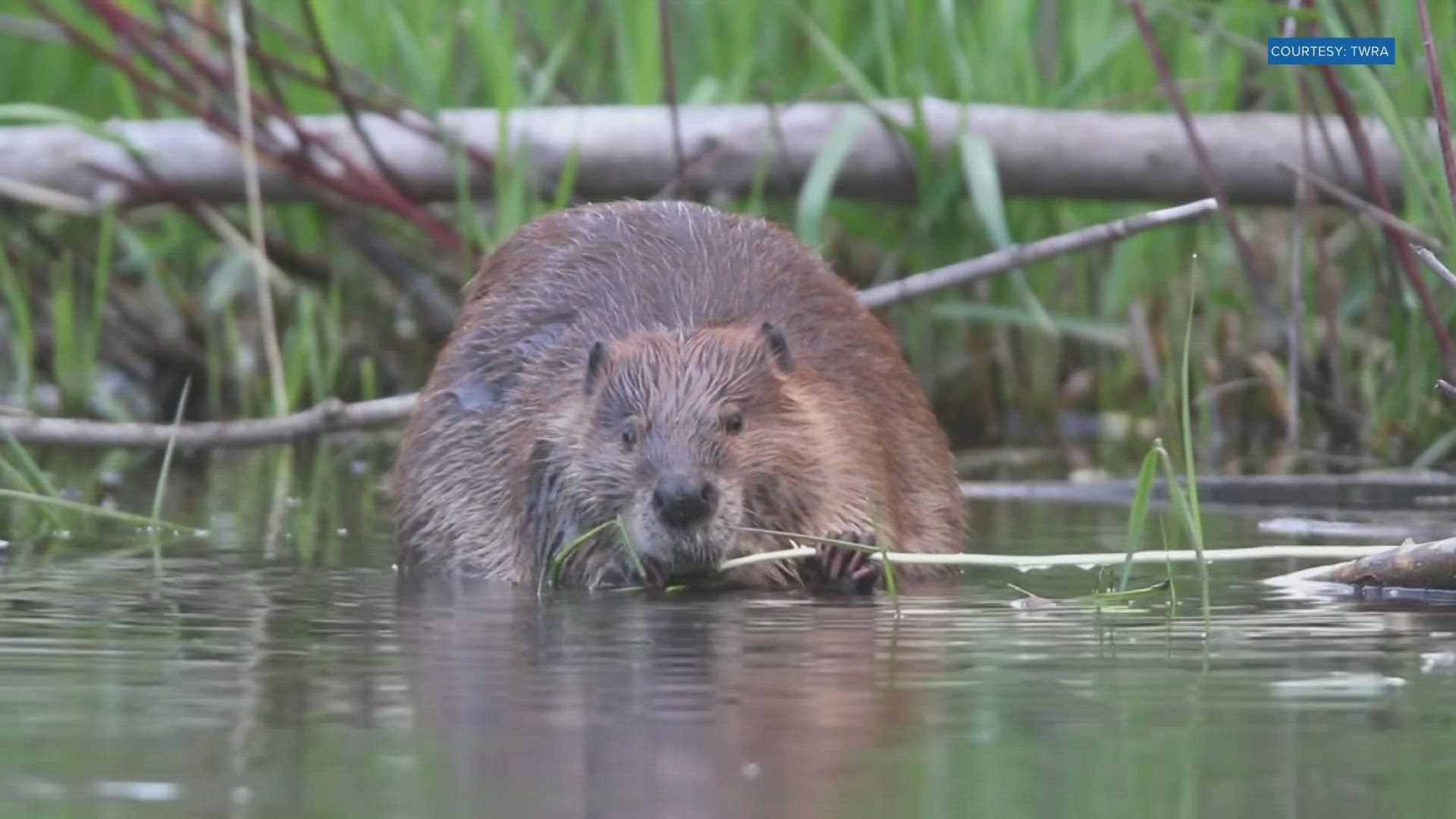CORRYTON, Tenn. — David Bowers said he has been frustrated with beavers for the past five or six years.
"I've tried to remove the dams," Bower said. "The issue is, they keep coming back."
Bower has had acreage in Northeast Knox County for almost 20 years. He said he used to have horses and bottle-fed cows on his property. Now, he said beavers have dammed Roseberry Creek and turned his backyard into a swamp, completely flooding acres of land once used to graze cattle and horses.
The water has fed vegetation several yards high and made it impossible for Bower to mow or cut it.
"We can't walk through that," Bowers said. "I can't see how we could get a machine to get through that without it getting stuck."
He said he has had conversations with the Tennessee Wildlife Resources Agency, which told him to trap the beavers. He said when he tried to trap them himself and hired help, the problem came back within weeks.
His neighbor upstream on the other side of Washington Pike has the same issue, to a lesser degree. He said he's worried about the future and flooding on the main road.
"The water just keeps coming up with the heights of the new dams the beavers make," said Bill Rives. "If you get a huge rain, like we have in February, it can be up on the road and you can hear cars splashing on the highway. I'm sure that's going to cause Knox County problems when that road floods."
Bower and Rives saw WBIR's story about a partnership with Campbell County Rep. Dennis
Powers (R- Jacksboro) and the U.S. Department of Agriculture to provide $10,000 annually of state funding to help with dams by beavers. The TWRA will help aid this removal in the White Oak community.
The TWRA said the state couldn't appropriate money straight to the USDA, so lawmakers used the agency as a pass-through for the funding. TWRA is not funding the beaver removal — the General Assembly is.
Bower and Rives said they want similar help to get rid of the beaver problems in their community.
"We're gonna keep having this problem until we get rid of the beavers," Rives said. "You can kill 15 and 15 more come back in a couple of weeks. I would like to see one of our representatives take a hold of this and help fix it."
WBIR reached out to TWRA with their concerns. Below is the agency's full response.
"TWRA is happy to partner with Representative Dennis Powers and the USDA to help the White Oak community address flooding issues caused by beavers. Wildlife species bring important biodiversity and natural resources to communities across Tennessee, but it is not unusual for human – wildlife conflicts to occur when wildlife seek food, water, or habitat near people. While this funding was appropriate by the General Assembly for a specific project, we understand private landowners may be facing similar challenges on their property.
Due to funding and manpower, TWRA cannot assist landowners with capturing nuisance wildlife, but we do strive to provide technical assistance when possible. Landowners can legally capture some species of nuisance wildlife, including beavers, without a permit if the animal is causing damage. Beavers specifically are also legal for hunting and trapping year-round with a valid hunting license. Landowners can also hire Animal Control Operators, which are permitted by the TWRA, to provide trapping or removal services on their property. Once an animal has been trapped, it must be dispatched or released on the same property. Only a permitted ADC operator can transport wildlife to an approved release site off the original property.
Members of the public can visit the ADC site to find an operator near them."

